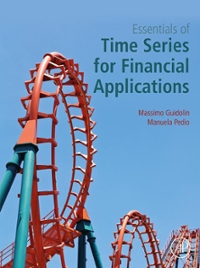Question
Terryl Plotnikoff had just finished reading the student intern report on how her company, Canadian Mattress Recycling ( http://canadianmattressrecycling.com ), might expand its business in
Terryl Plotnikoff had just finished reading the student intern report on how her company, Canadian Mattress Recycling (http://canadianmattressrecycling.com), might expand its business in other cities across Canada. She wondered if the report was too optimistic: Outside of big cities such as Toronto, Montreal, and Vancouver, would consumers be interested in paying a company like hers to take away their used mattresses for reuse and recycling? In Vancouver, where her business was started in 2011, a decision by city officials to ban mattresses from landfills and garbage dumps created a business opportunity that had met with great success. Would she be able to replicate her business model in cities that didn't have this type of civic support?
Mattress Recycling
Mattress recycling is a relatively new industry in North America; most recycling organizations having entered the marketplace only in the past few years. The business model typically involves used-mattress pickup from either homes or institutions (e.g., hotels, university residences, hospitals) for a fee. Alternatively, consumers can drop off their used mattresses at the local recycler for a reduced fee. The mattresses are then separated into their material componentscotton, felt, wood, metal, plastics, even coconut fiberwhich are then sold off to a variety of manufacturing entities to use as raw material. It is estimated that approximately 99 percent of box springs and mattresses can be recycled, thus preventing hundreds of thousands of pounds of material from ending up in the landfill.
In Canada, mattress recycling businesses have been started in Montreal (Matt Canada), Toronto (Recover Canada), and Vancouver (Canadian Mattress RecyclingandMattressrecyling.ca).In every case, the businesses have met with success and growth. For example, in Metro Vancouver, the recycling depots handled over 47 000 mattresses and box springs in the first few years they had been open. City officials indicated their satisfaction with these businesses, holding them out as a great example of public policy and private business working together to maximize reuse, recycling, and resource recovery. Indeed, these businesses had created more than 45 jobs locally and had significantly reduced both landfill waste and illegal dumping.
Expanding the Business
Terryl was interested in growing and expanding the business. Apassionate advocate of sustainability, she had built a business that sought to recycle nearly 100 percent of everything that moved through the door. Equipment, supplies, even warehouse staff overalls had been pre-owned or made with recycled materials. The operation sought a minimal carbon footprint, and every employee enjoyed the creative and ongoing challenge of reducing the impact of consumption. Initial success in all aspects of the business had inspired Terryl to seek new opportunities.
Already she had seen some success in expanding her business into recycling metal appliances and furniture. However, she wondered whether the expansion in the core competency of mattress recycling made more sense strategically. As a first step, Terryl had commissioned a student summer intern to investigate possibilities. The intern's report indicated that Canadians, in general, were very open to recycling behaviors but typically didn't want to pay for it and definitely weren't excited about changing behaviors if it involved significant effort and changes in their consumption patterns.
Terryl wondered how this information might be useful in formulating her growth strategies. She wondered whether moving into other Canadian cities was a viable growth strategy. Larger cities such as Calgary, Winnipeg, Ottawa, or Halifax seemed like obvious choices because they would probably map behaviors seen in Toronto and Vancouver, but what about smaller cities and towns? Would consumers in smaller population centers be interested in this type of recycling? Perhaps the fact that these communities typically had fewer issues and less pressure concerning waste management meant that the need for this type of recycling initiative was moot. Further, Terryl wondered how critical civic policy was in fostering a business climate in which she could succeed. Did the consumer need to be prodded into recycling behavior, or had Canadian society matured to the point that consumers would naturally seek out their business regardless of civic policies?
Setting the report down on her desk, Terryl turned to her computer to begin mapping out the new strategy that would guide her organization into the future.
- How have disposal behaviors changed in Canada? Do you think there are differences in behavior across provinces and rural versus urban centers? What do you anticipate for the future?
- Should Terryl expand her operations across Canada? If so, how should she proceed?
- What is the role of public policy here? Do you agree with the notion that government should play an active role in guiding sustainable consumption behaviors among the population? Why or why not? Does Terryl need a favorable government policy to succeed? Explain.
- How would you convince consumers to adopt specific recycling behaviors? What positioning strategy/messaging would you utilize? What barriers exist here? How would you overcome them?
Step by Step Solution
There are 3 Steps involved in it
Step: 1

Get Instant Access to Expert-Tailored Solutions
See step-by-step solutions with expert insights and AI powered tools for academic success
Step: 2

Step: 3

Ace Your Homework with AI
Get the answers you need in no time with our AI-driven, step-by-step assistance
Get Started


